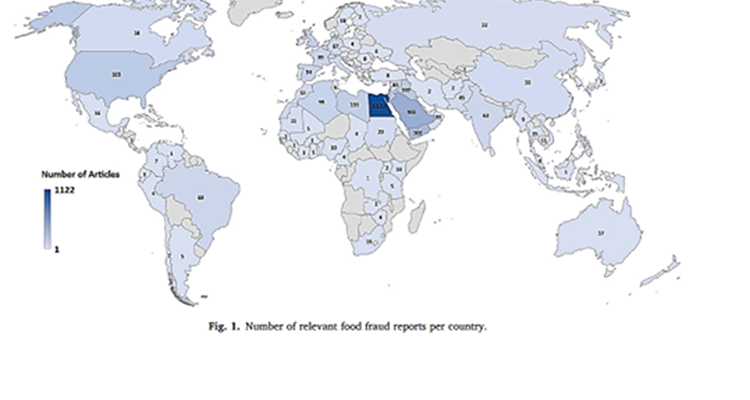
Thesis subject
Food Authenticity using Artificial Intelligence: Enhancing traceability and combating food fraud (MSc)
Food fraud is a serious problem that may compromise the safety of the food products being sold on the market.
Previous studies have shown that food fraud is associated with a large variety of food products and the fraud type may vary from deliberate changing of the food product to the manipulation of documents. It is therefore important that all actors within the food supply chain have methodologies and tools available to detect fraudulent products at an early stage so that preventative measures can be taken. This MSc project aims to use AI to develop a predictive model that can forecast food fraud based on various factors.
Short description
The project will involve collecting and analyzing data from various sources, including publicly available food fraud databases, literature, and surveys. The student will use AI techniques such as machine learning algorithms to identify patterns and correlations between the data and food fraud outcomes. He will also develop an AI model that can integrate the various factors influencing food fraud.
Objectives
- Conduct a comprehensive literature review on AI techniques, food fraud, food fraud databases and prediction models.
- Identify, collect, and preprocess relevant online food fraud databases, including literature and news articles, and health-related websites.
- Explore different AI algorithms, including NLP techniques, and machine learning models for predicting food fraud.
Tasks
The work in this master thesis entails:
- Literature review: Conduct a review of existing research studies, to identify relevant studies on food fraud prediction using open-access data and AI techniques. This will provide a foundation of knowledge and identify research gaps.
- Data collection and preparation: Identify relevant open-access data sources and collect and preprocess the data.
- AI models development: Use machine learning algorithms to develop a predictive model that can forecast food fraud.
- Results reporting and documentation: Prepare a comprehensive report summarizing the research methodology, results, and conclusions.
Literature
- Marvin, Hans J.P. ; Hoenderdaal, Wouter ; Gavai, Anand K. ; Mu, Wenjuan ; Bulk, Leonieke M. van den; Liu, Ningjing ; Frasso, Gianluca ; Ozen, Neris ; Elliott, Chris ; Manning, Louise ; Bouzembrak, Yamine (2022). Global media as an early warning tool for food fraud; an assessment of MedISys-FF. Food Control 137.
- Bouzembrak, Y. ; Steen, B. ; Neslo, R. ; Linge, J. ; Mojtahed, V. ; Marvin, H.J.P. (2018). Development of food fraud media monitoring system based on text mining, Food Control 93 . - p. 283 - 296.
- Marvin, Hans J.P. ; Bouzembrak, Yamine ; Janssen, Esmée M. ; Fels, Ine van der; Asselt, Esther D. van; Kleter, Gijs A. A holistic approach to food safety risks: Food fraud as an example (2016) Food Research International 89. - p. 463 - 470.
Requirements
- Courses: Programming in Python (INF-22306), Data Science Concepts (INF-34306) or Machine Learning (FTE-35306)
- Required skills/knowledge: Food and health, Machine Learning
Key words: Artificial Intelligence, food quality, food safety and health.
Contact person(s)
Yamine Bouzembrak (yamine.bouzembrak@wur.nl)
Ayalew Kassahun (ayalew.kassahun@wur.nl)